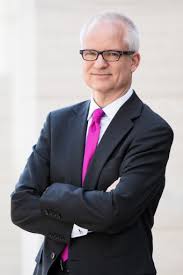1. Please tell us a bit about yourself, both at work and leisure.
After my business studies in Germany and the US, I started my career as a management consultant. In 1999, together with a German multi-family office, I started an alternative investment fund of funds advisor. From 2012 to 2015, I was executive board member of a mutual fund company focusing on portfolios of index funds and we started three responsible Environmental, Social and Governance (ESG) funds. In 2016, I started my own company Diversifkator. The focus is on pure and customized ESG portfolios.
My hobbies are table tennis, reading and writing.
2. What are your professional focus areas, overall and within FinTech?
I focus on developing unique investment portfolios. Although there are thousands of portfolios being offered already, for my own investments I missed convincing multi-asset and pure ESG portfolios. My portfolios are fully rules based and all rules, positions, trades and even backtests are available online. The sales focus is business -to-business, but retail investors, who often are not attractive clients for small for banks and independent asset managers and advisors, can also invest via self-service. Going forward, Diversifikator will also offer many customization possibilities online.
3. What opportunities or challenges are FinTechs creating for European Financial Institutions?
Fintechs can significantly reduce costs and time to market and increase service options. Traditional institutions can either use the new technologies to offer more, faster and/or cheaper services, or they will lose market share and their profits may be significantly reduced. The problem is to decide which services to offer and how, especially choosing the most adequate technologies and business partners.
4. What do you think about the incumbents’ response so far?
Many incumbents are too slow in recognising potential opportunities and/or implementing new services. One of the reasons is too much fear of so called cannibalization of existing products and services. In order to succeed in the future, they have to try to cannibalize themselves. That is better than waiting for others to cannibalize them.
5. Which way do you see the sector going and who would be the likely winners?
Regarding investments it seems clear to me that low-cost investments paired with separately paid-for services such as specific advice will be most successful in the future. I also see a very strong trend towards responsible investments. Since people differ very much concerning the definition of “responsible”, the adequate answer are customizable solutions. Financial technology can help to create low cost custom ESG portfolios and, if properly implemented, reduce administrative costs for the suppliers at the same time.
6. What tip would you like to give FinTech entrepreneurs?
Expect to use much more time and money to reach a profitable project than expected. Look for strong and reliable and dedicated partners you can team up with.
7. What’s on your bookshelf/holiday reading list?
“Gier” by Marc Elsberg.

